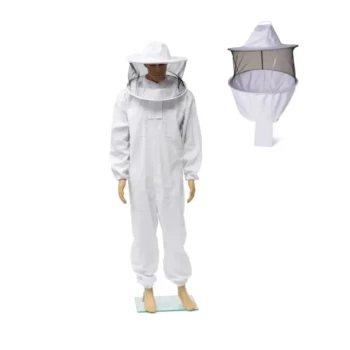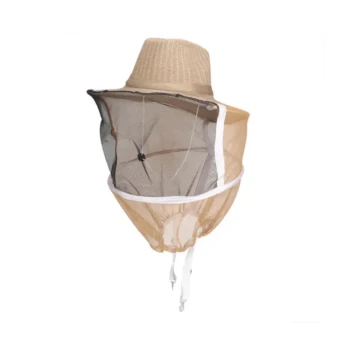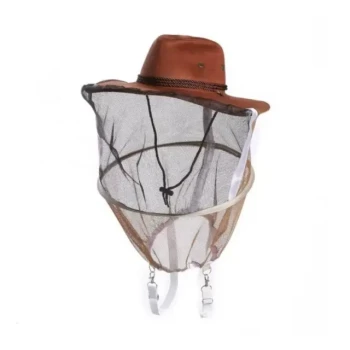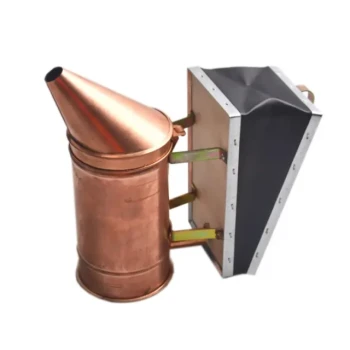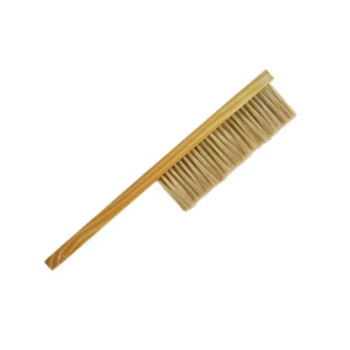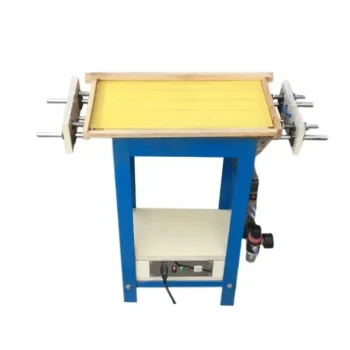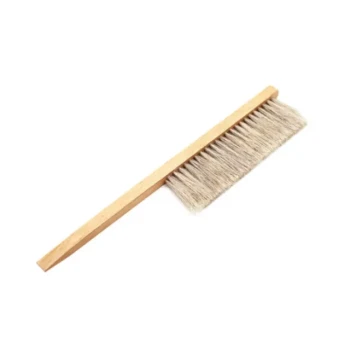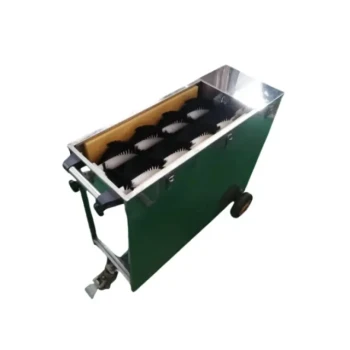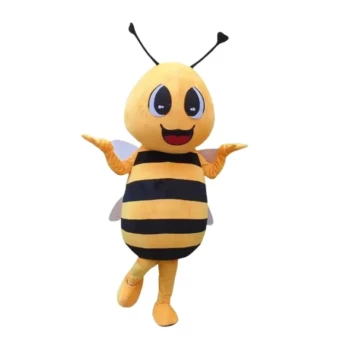In the heat of a bee yard, proper ventilation in your footwear is crucial for keeping your feet cool, dry, and comfortable. Working in a full bee suit on a warm day generates significant heat, and well-ventilated shoes help prevent the distracting discomfort that can lead to mistakes when handling tens of thousands of stinging insects.
While ventilation is essential for comfort, it must be carefully balanced against the non-negotiable requirement of sting protection. The ideal beekeeping shoe uses breathable materials to manage heat, not large holes that would grant bees access to your feet.
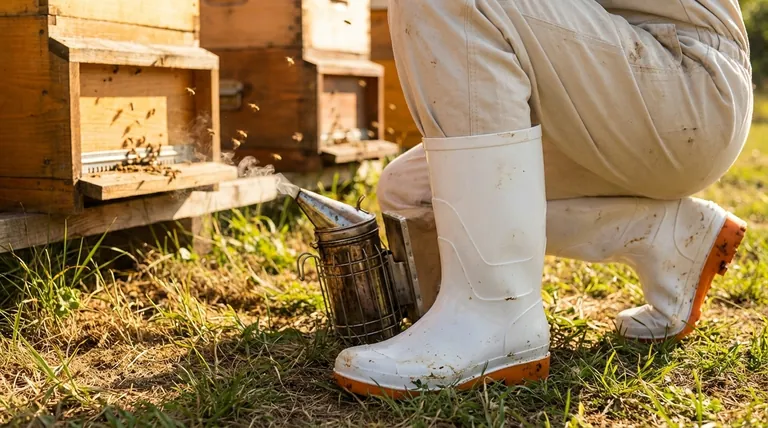
The Core Function of Ventilation
Ventilation in footwear serves two primary purposes for a beekeeper, both centered on managing the challenging environment of an active apiary.
Preventing Overheating and Moisture
Beekeeping is often physical work performed in direct sunlight while wearing insulating protective gear. This combination quickly leads to overheating.
Your feet, enclosed in shoes, are particularly susceptible. Proper ventilation allows heat and sweat to escape, keeping your feet drier and more comfortable.
Maintaining Focus and Safety
Discomfort is a distraction. Feet that are hot, sweaty, or developing blisters demand your attention, pulling your focus away from the critical task of inspecting a hive.
A moment of distraction can lead to a clumsy movement, a dropped frame, or an agitated colony. Comfortable, dry feet help you remain calm and focused, which is a key component of safe beekeeping.
The Critical Trade-off: Ventilation vs. Protection
Choosing beekeeping footwear is an exercise in balancing competing needs. While you want ventilation for comfort, you cannot compromise on protection.
Protection is Paramount
The primary job of your footwear is to prevent stings. Bees can and will crawl into any available opening. A single bee inside your boot can inflict multiple painful stings before you can react.
For this reason, proper coverage is non-negotiable. Your shoes must completely enclose your feet and ankles.
The Danger of "Over-Ventilation"
Footwear with large perforations, like clogs (Crocs), sandals, or mesh running shoes, is entirely unsuitable for the bee yard. These holes are open doors for bees.
Even a small gap between your shoe and your pant leg can be an entry point. This is why high-top boots or shoes that fit snugly around the ankle are the standard recommendation.
Achieving a Safe Balance
True ventilation in beekeeping shoes comes from the material, not from holes.
Materials like leather and thick canvas are breathable, allowing moisture vapor to escape without creating an entry point for insects. Modern work boots often feature panels of breathable, puncture-resistant fabric that serve the same purpose.
Key Characteristics of Effective Beekeeping Footwear
Beyond the ventilation-protection balance, several other factors define a good beekeeping shoe.
Sting-Proof and Durable Material
Your shoes should be made of a material thick enough to prevent a bee's stinger from penetrating, such as leather, rubber, or heavy-duty canvas. They must also withstand being scraped, scuffed, and covered in wax and propolis.
Ankle Support and Stability
Beekeepers routinely lift heavy hive boxes weighing 50 pounds or more, often while standing on uneven ground. Shoes with good ankle support and a sturdy, supportive sole help prevent sprains and fatigue.
Slip-Resistant Soles
Apiaries can have wet grass, mud, or slick spots. A slip-resistant sole is a critical safety feature that provides stable footing as you work around the hives.
Making the Right Choice for Your Apiary
Evaluate your needs to select the best footwear for your situation.
- If your primary focus is maximum protection: Choose seamless rubber or all-leather high-top boots that seal completely against your bee suit.
- If your primary focus is comfort in a hot climate: Look for high-top work boots made from a combination of leather and breathable fabric panels.
- If your primary focus is versatility and budget: A sturdy pair of canvas high-top sneakers or old leather hiking boots can be effective, as long as they provide full coverage and have no holes.
Ultimately, the right footwear empowers you to work confidently and safely, allowing you to focus on the health of your bees.
Summary Table:
| Feature | Importance for Beekeepers |
|---|---|
| Ventilation | Manages heat and moisture, preventing distraction and discomfort. |
| Sting-Proof Material | Non-negotiable for safety; prevents bee stings through the shoe. |
| Ankle Support | Provides stability when lifting heavy hive boxes on uneven ground. |
| Slip-Resistant Soles | Ensures stable footing on wet grass, mud, or slick surfaces. |
Equip Your Apiary with Confidence
Your focus should be on your bees, not on uncomfortable or unsafe footwear. HONESTBEE supplies durable, protective beekeeping footwear and equipment designed specifically for the demands of commercial apiaries and distributors.
We understand the critical balance between ventilation for comfort and uncompromising sting protection. Our wholesale-focused operations ensure you get the reliable gear you need to keep your team safe and productive.
Contact HONESTBEE today to discuss your equipment needs and enhance your beekeeping operations.
Visual Guide
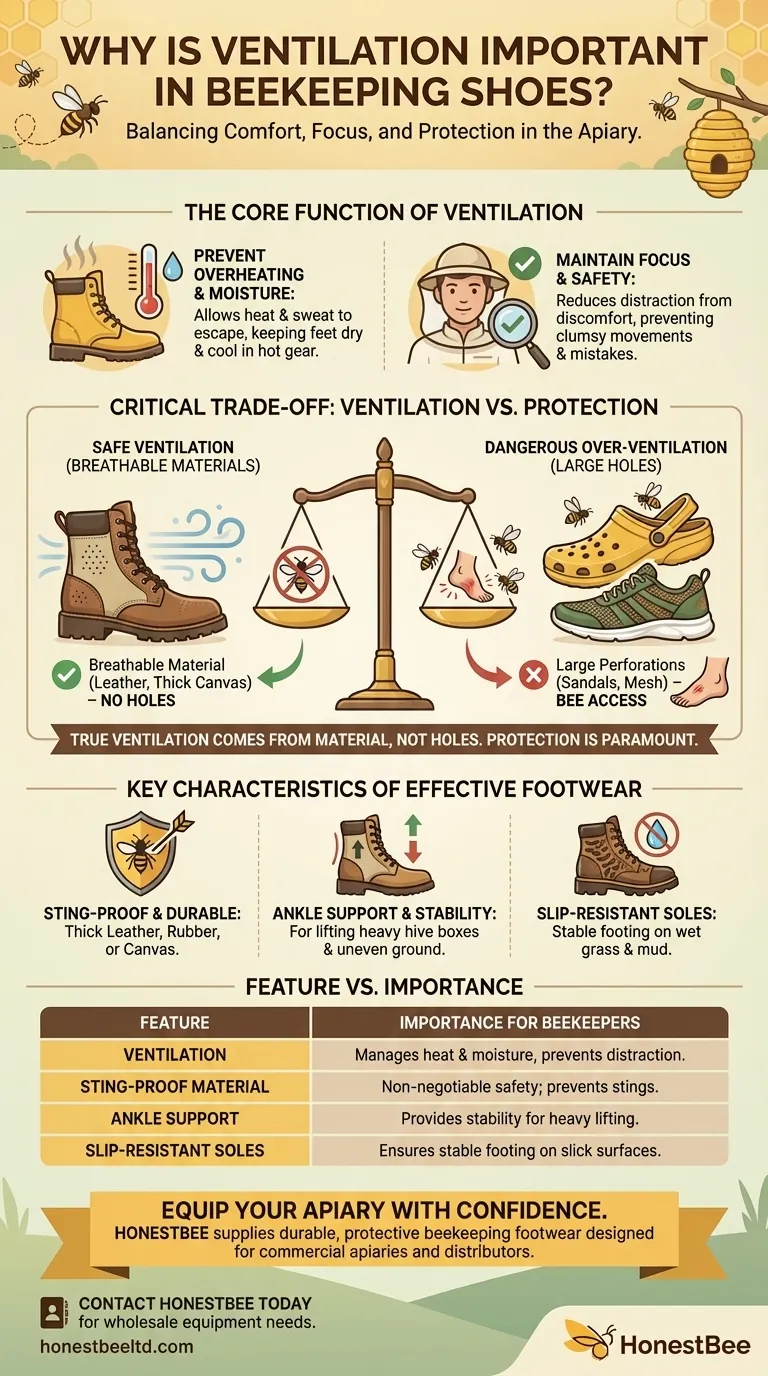
Related Products
- White PVC Beekeeping Shoes with Non-Slip Safety Sole
- Professional Cotton Beekeeper Suit with Round Veil Design for Commercial Apiaries
- Professional Galvanized Hive Strap with Secure Locking Buckle for Beekeeping
- Professional Beekeeping Suit for Kids and Girls Childrens Bee Keeper Suit
- Beekeeper Cowboy Hat and Veil for Beekeeping
People Also Ask
- Why is slip resistance a critical feature for beekeeping shoes? Ensure Stability and Safety in the Apiary
- What are some examples of boots used for beekeeping? Essential Protection for Your Apiary Work
- How do leg straps function as a protective measure in beekeeping? Essential Safety Tips for Beekeepers
- What type of footwear is recommended for beekeeping? Essential Guide to Protective Boots for Apiary Safety
- What features are important when choosing boots for beekeeping? Secure Your Safety with Professional Footwear
- What features are important when selecting beekeeping boots? Safety & Gear Guide for Commercial Beekeepers
- What is the importance of proper coverage in beekeeping shoes? Essential Protection for Your Feet and Ankles
- Why are specialized Beekeeping Uniforms and Protective Boots essential? Secure Your Apiary with Professional Grade Gear

